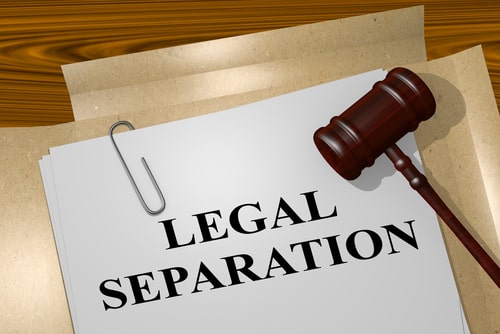Recent Blog Posts
How Can a Financial Restraining Order Protect Assets in an Illinois Divorce?
 When people hear the word "restraining order," they often associate it with situations involving domestic violence or harassment. However, other types of restraining orders can be issued under Illinois law, including a financial restraining order. If you and your spouse are getting divorced and have significant assets or anticipate that any negotiations over the division of marital assets will be contentious, a financial restraining order can ensure your right to those assets is protected. A Kane County divorce lawyer can assist you with this process.
When people hear the word "restraining order," they often associate it with situations involving domestic violence or harassment. However, other types of restraining orders can be issued under Illinois law, including a financial restraining order. If you and your spouse are getting divorced and have significant assets or anticipate that any negotiations over the division of marital assets will be contentious, a financial restraining order can ensure your right to those assets is protected. A Kane County divorce lawyer can assist you with this process.
Why Would You Need a Financial Restraining Order?
The state of Illinois uses the equitable distribution standard when it comes to dividing up assets and property in a divorce. The goal is to divide these items fairly. However, in many cases, fairness is not necessarily a 50/50 split. Factors the court may consider include how long the couple has been married, what the financial contributions of each spouse were, and what each spouse’s future financial earnings outlook is.
What Can I Do if My Divorce Mediator is Biased?
 In times past, the stereotype of divorce was that of an angry, prolonged courtroom battle. Spouses lobbied insults at each other over the heads of their attorneys, while the judge banged the gavel and called for order.
In times past, the stereotype of divorce was that of an angry, prolonged courtroom battle. Spouses lobbied insults at each other over the heads of their attorneys, while the judge banged the gavel and called for order.
If that ever was the case, it certainly is not anymore. Judges in Illinois want to see couples do their best to solve problems on their own, without the help of a court. Although court intervention is possible and sometimes necessary, divorces with the best long-term outcomes are those in which a couple is able to negotiate important issues outside of court, using divorce mediation if necessary.
Of course, in order to work towards a fair divorce decree, everybody has to be negotiating in good faith. That includes the mediator. Most mediators are careful, wise, and experienced divorce attorneys who understand what it takes to get a reasonable agreement out of a disagreeing couple. Mediators are not perfect, however, and sometimes they run into the same personal biases that the rest of us do. If you are trying to pursue divorce mediation and have a hunch that your mediator is turning the case against you, it is important to take action. The outcome of a divorce decree has the potential to impact you for the rest of your life. Contact our Illinois divorce attorneys today.
Post-Divorce Enforcement – What You Need to Know
 When a divorce is finalized, both parties must adhere to the divorce order that has been agreed upon. Divorce orders typically outline certain responsibilities for both parties, such as child custody and alimony obligations, and ignoring or neglecting these responsibilities can lead to serious consequences. Repeated violations of a divorce order can result in the need for post-divorce enforcement.
When a divorce is finalized, both parties must adhere to the divorce order that has been agreed upon. Divorce orders typically outline certain responsibilities for both parties, such as child custody and alimony obligations, and ignoring or neglecting these responsibilities can lead to serious consequences. Repeated violations of a divorce order can result in the need for post-divorce enforcement.
An experienced Illinois post-divorce enforcement attorney can review your case and give you an idea of your next steps if your ex is violating a divorce order.
What Counts as Violating a Divorce Order?
Divorce orders include important agreements about issues like visitation (parenting time), decision-making authority (custody), child support, and alimony payments. Both ex-spouses must uphold their end of the agreement after a divorce, as divorce orders are legally binding.
My Ex Is Stalking Me During Our Divorce - What Do I Do?
 As you start the process of divorce from your ex, there is a chance that the stress of the situation can bring out the worst behaviors in your former partner. Additionally, if there has been a history of domestic violence in your marriage, you may be at risk of being stalked or threatened by your ex during a divorce.
As you start the process of divorce from your ex, there is a chance that the stress of the situation can bring out the worst behaviors in your former partner. Additionally, if there has been a history of domestic violence in your marriage, you may be at risk of being stalked or threatened by your ex during a divorce.
Being a victim of stalking can be scary, and it is important to speak to a knowledgeable Illinois order of protection lawyer to understand how you can protect yourself from stalking behavior during your divorce.
Stalking During Divorce
Illinois law defines stalking as repeated behaviors that are directed at a specific person in order to harass, cause fear, or otherwise threaten that person. Stalking may happen during a divorce if there is a history of domestic violence, if one party feels particularly enraged or angered about the situation, or if one party is having trouble letting go of his or her ex.
Is Illinois Divorce Mediation Right for Me?
 Opting for a mediator in your divorce instead of a lengthy court battle can save stress and time, but divorce mediation is not the right choice for every divorcing couple. Understanding whether or not Illinois divorce mediation is the right choice for you can depend on the relationship you have with your soon-to-be-ex spouse and your divorce needs. A skilled Illinois attorney who also works as a divorce mediator can further answer your questions.
Opting for a mediator in your divorce instead of a lengthy court battle can save stress and time, but divorce mediation is not the right choice for every divorcing couple. Understanding whether or not Illinois divorce mediation is the right choice for you can depend on the relationship you have with your soon-to-be-ex spouse and your divorce needs. A skilled Illinois attorney who also works as a divorce mediator can further answer your questions.
What Are the Advantages of Divorce Mediation?
Mediation is when you and your spouse sit down with a mediator to discuss your issues and reach mutually acceptable solutions. With the help of a mediator, you can have a neutral third party who will help to influence the conversation in a positive way, ensuring you and your partner reach agreements without arguments or unproductive fights.
What Can I Do if My Ex Refuses to Pay Alimony?
 Alimony payments, also known as spousal support or spousal maintenance payments in Illinois, refer to payments made from one ex-spouse to another after a divorce is finalized. Alimony payments are court-ordered, and your ex failing or refusing to make his alimony payments can come with serious legal consequences.
Alimony payments, also known as spousal support or spousal maintenance payments in Illinois, refer to payments made from one ex-spouse to another after a divorce is finalized. Alimony payments are court-ordered, and your ex failing or refusing to make his alimony payments can come with serious legal consequences.
If you are struggling to get your ex-spouse to pay alimony, you will need the assistance of an Illinois spousal maintenance lawyer to explore your enforcement options and help you get the payments you need.
Can I Go to Court to Enforce Alimony?
While you may be tempted to go to court immediately to force your ex to pay, your first step should be a conversation with your former spouse whenever possible. This can let you know if your ex has truly fallen on hard times and needs an adjustment to the payment schedule, or if he is refusing to pay alimony willfully. Consult your lawyer before having this conversation and try to get your ex’s response in writing.
What Is Abuse of Allocated Parenting Time in Illinois?
 Abuse of allocated parenting time occurs when one parent interferes with the other parent’s designated time with a shared child. This may be done to prevent the other parent from gaining access to the shared child, or it may be done because one parent is angry at the actions of the other.
Abuse of allocated parenting time occurs when one parent interferes with the other parent’s designated time with a shared child. This may be done to prevent the other parent from gaining access to the shared child, or it may be done because one parent is angry at the actions of the other.
Regardless of how it occurs, abusing and interfering with allocated parenting time can have serious consequences. If this occurs in your child custody situation, you will need the assistance of a skilled Illinois child custody lawyer to help you ensure your parenting time is shared according to your divorce agreement.
Understanding Abuse of Allocated Parenting Time
Illinois takes child custody issues seriously, and abusing allocated parenting time can result in both criminal and civil legal issues. In general, abuse of allocated parenting time occurs when one parent does not uphold or adhere to the child custody arrangements that were agreed upon when a divorce was finalized.
What to Know About Illinois Stepchild Adoption
 Adopting your stepchild in Illinois can be a joyful occasion, but the process of achieving this may be complicated. The other biological parent of your stepchild must terminate his or her rights before an adoption is allowed to proceed, and this can create issues if a biological parent refuses. Additionally, potential stepparents need to meet certain qualifications before they are eligible to complete the adoption process.
Adopting your stepchild in Illinois can be a joyful occasion, but the process of achieving this may be complicated. The other biological parent of your stepchild must terminate his or her rights before an adoption is allowed to proceed, and this can create issues if a biological parent refuses. Additionally, potential stepparents need to meet certain qualifications before they are eligible to complete the adoption process.
An experienced Illinois stepchild adoption attorney can answer your questions about this process.
Who Qualifies for Illinois Stepchild Adoption?
Stepchild adoption can be a complicated process, and it is important to understand the steps of this process in addition to what qualifies someone to complete a stepchild adoption. In general, the following qualifications must be met before a stepparent is able to legally adopt a stepchild.
- The stepparent must be legally married to the child’s biological parent; a boyfriend or girlfriend cannot legally adopt a stepchild.
Can My Social Media Accounts Be Used in a Divorce?
 In today’s world, many people use social media to update their families and friends on their lives, including updating their relationship status. However, when you put too much personal information on your social media accounts, including details about your divorce or criticisms of your ex, it might affect your divorce.
In today’s world, many people use social media to update their families and friends on their lives, including updating their relationship status. However, when you put too much personal information on your social media accounts, including details about your divorce or criticisms of your ex, it might affect your divorce.
A skilled Illinois divorce lawyer will help you further understand the impact of social media on your divorce.
Will My Ex Use My Social Media Accounts as Evidence?
While there is no guarantee that your ex will use your social media accounts as evidence during your divorce, it is always a good idea to keep this potential in mind. If your ex and his or her legal counsel scour your social media pages for evidence, you will want to ensure that you are not posting anything that could potentially give you issues further along in your divorce case.
During your divorce, you should refrain from doing the following on social media:
Is Illinois Legal Separation the Same as Divorce?
 Legal separations can be confusing because many people are not as familiar with legal separations as they are with divorce. In Illinois, legal separation is a separate legal process from divorce, and it is typically used by couples who wish to be separated but are not ready to fully end their marriage with a divorce.
Legal separations can be confusing because many people are not as familiar with legal separations as they are with divorce. In Illinois, legal separation is a separate legal process from divorce, and it is typically used by couples who wish to be separated but are not ready to fully end their marriage with a divorce.
An experienced Illinois legal separation lawyer can help you determine if this is the right choice for you.
What Is Legal Separation?
Legal separation is an agreement between two spouses that is court-approved and allows the couple to live separately both physically and financially while still legally being married. Many couples who choose a legal separation over divorce select this option to give themselves space from their spouse and to allow for personal growth and counseling.

 630-584-5550
630-584-5550







 630-584-5550
630-584-5550